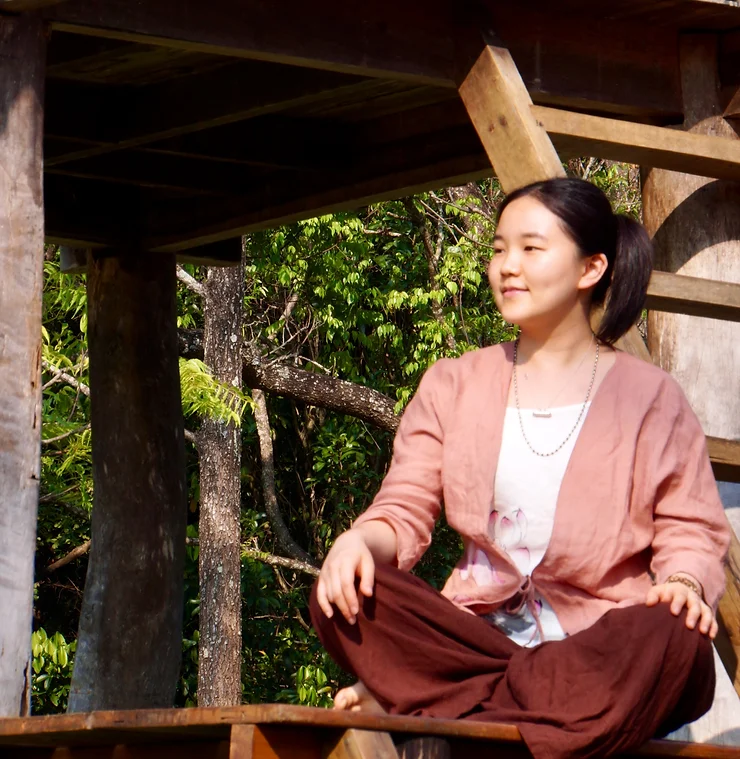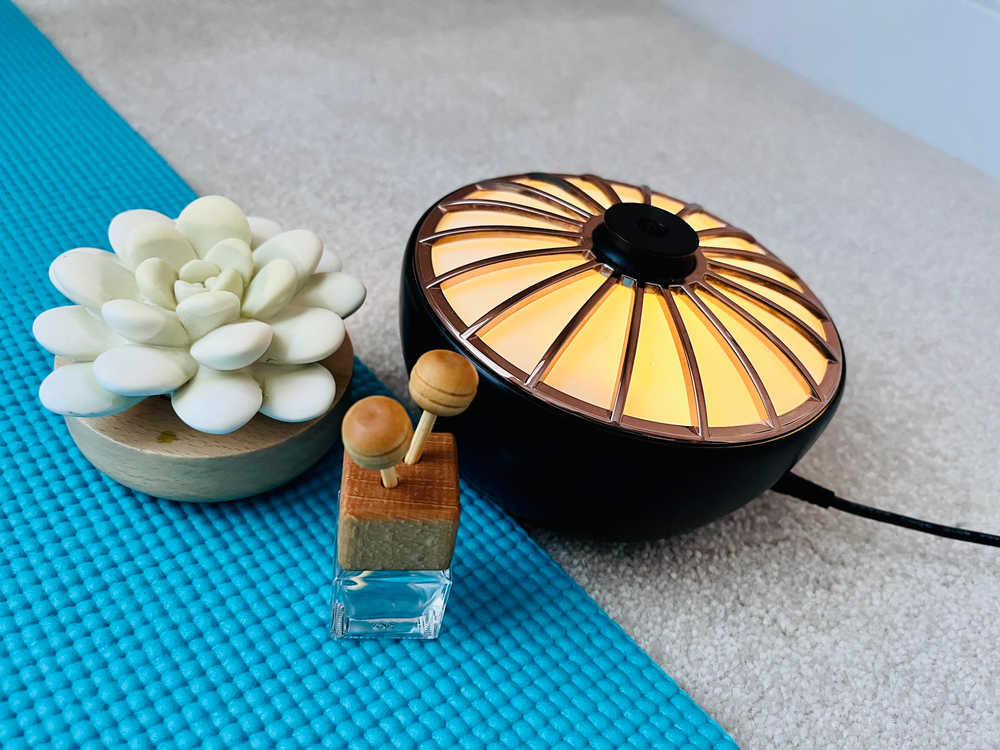
Welcome to Beyond the Desk – a series exploring passions, interests, and hobbies outside of the office. This month, our intern, Justin Zhu interviews Program Manager Yangyujin Liu and writes about her aromatherapy hobby.
Have a stressful day at work and don’t know how to relax your mind? What about a headache or cramps you can’t seem to get rid of? DSFederal Program Manager Yangyujin Liu discovered aromatherapy with her friend in the fall break of 2019 when she attended a DC area workshop. Immediately after, Yang embarked on her journey to connect with Mother Nature through aromatherapy.

Aromatherapy uses essential oils from natural plant extracts to promote health, well-being, and therapeutic benefit. Yang has always been interested in plants from a young age, and remembers the teachings from the elderly in China that have been passed down for generations about the power and significance of the plants around them. She recounted one of her earliest memories with traditional Chinese medicine when her grandma picked fresh herbs to cure her coughs and colds naturally. Aromatherapy allows the relationship between Mother Nature and her health benefits to be explored.
In Yang’s quest to learn more about aromatherapy, she attended a TÜV Rheinland certified qualification course on aromatherapy during the pandemic. She also attends courses taught by lecturers from different countries on the weekends, to further her knowledge of the different properties and blends of the various oils. Yang explains that “because different countries have different requirements, knowledge, and practice on aromatherapy… It’s important and beneficial to attend international courses.”
The essential oils used in aromatherapy are all around us and are already a part of our everyday lives. “When you squeeze the rind of an orange or a lemon, the oil that sprays over your hand is an essential oil!” Yang suggests that using essential oils in your room daily can help to balance your mood. Similarly, different aromatherapy can have additional health benefits depending on the seasons. For instance, in wintertime, you can increase the frequency of fighting diseases and boost the immune system naturally. But how would you know which oils are best for you and when?
Yang shared some of her favorite blends, including wild orange with peppermint, which she uses daily to feel refreshed and increase her concentration and productivity. But among all her oils, her favorite one is vetiver. Yang explained that “its aroma is earthy and grounding; it helps me to root myself in the present moment and balance my emotions.” Yang prefers to pair her blends with an electric or traditional diffuser such as a stone, a piece of wood, or even a pinecone picked from the wood.
For other DSFers who want to start their aromatherapy journey but if you are unsure where to start, Yang recommends one to spend some time in nature and find out which plant’s aroma attracts and pleases you most. “When you take a deep breath in the woods of the scent of trees, you are already experiencing the benefits of aromatherapy.” Yang also stressed that a symptom can be caused by different reasons, and it is important to find out the reason before choosing the oils. For example, headache – for a tension headache, Yang suggests peppermint oil which contains menthol and helps to ease pain. Its cooling effect can also help to relieve the muscle contractions on the head and neck. Eucalyptus essential oil would be a good option when someone suffers a headache caused by sinus issues or congestion, as it can clear the sinuses and open up nasal passages. Yang recommends lavender, the “Mother of Essential Oils,” if someone has a headache due to lack of sleep. Its familiar aroma is wonderfully calming and encourages restful sleep.
Yang encourages us to give aromatherapy a try as an all-natural remedy to some of our health concerns, because “Mother Nature holds the wisdom and key to our health and healing, and aromatherapy is a generous and powerful gift from Her.”


